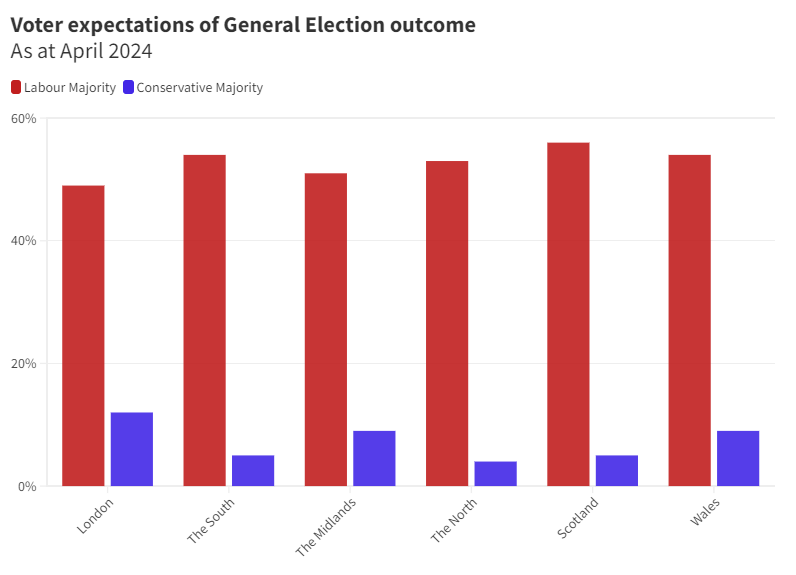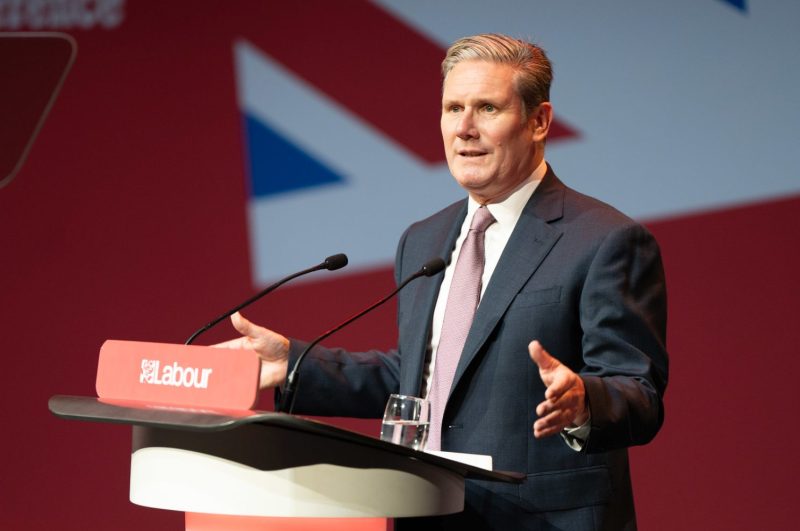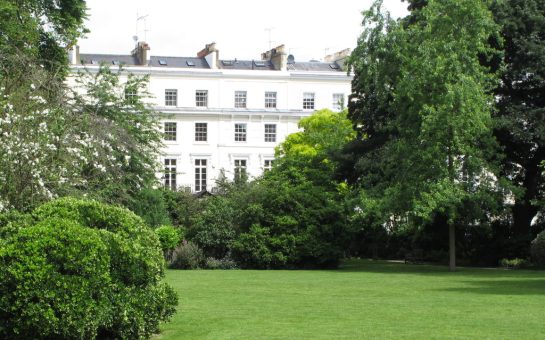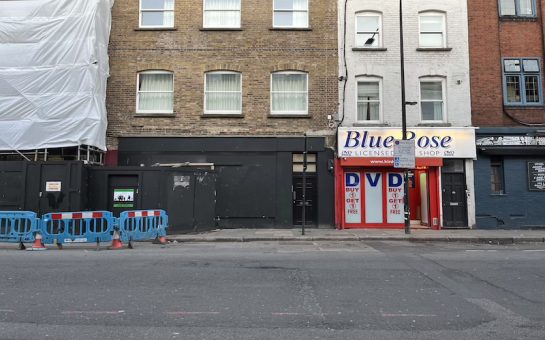Nearly half of Londoners believe that the Labour Party will win a majority of seats at the forthcoming general election.
A poll, conducted by YouGov, states that 49% of people in London believe that there will be a Labour majority in the House of Commons following the election, compared to just 12% who expect that the Conservative Party will win enough seats to form a government outright.
The polling, conducted monthly, paints a bleak picture for Rishi Sunak and his party and is the culmination of consistent decline since June 2021 where more than half of those surveyed believed that the government would maintain their majority in some form.
June 2021 was the month which saw Matt Hancock, the then Health Secretary, step down following the revelation that he was having an affair with an aide, in breach of lockdown guidance imposed following the Covid-19 pandemic.
Whilst the polling is conducted without explanation, the number of people who believed that the government would win at the next election fell sharply in the months that followed, reducing to 33% by September 2021.
Polling since has seen a consistent downturn in expectations of an outright conservative victory throughout the party-gate saga and the eventual resignation of then Prime Minister Boris Johnson.
This deterioration culminated in polling suggesting that only 12% of those polled in October 2022, the first poll conducted following Liz Truss’ ill-fated spell as Prime Minister, expected a Conservative victory.
Amanda, a 23 year old freelancer from north London said: “I think that everyone is fed up with the government.
“I think that people remember things such as the handling of covid and party-gate and were seeing the implications of Brexit so people who voted tory before might not this time.”
The polling does not get any better for the conservatives outside of London, with their 12% in the capital being the highest the party achieved from any part of the UK, with only 5% of those polled in Scotland and the rest of the south expecting a Conservative majority.

While figures of 49% suggest that a significant number of Londoners view the Labour party as a government in waiting, it would be naïve to assume that this is an endorsement of Labour pledges as opposed to an indictment of views towards the incumbent government.
Labour consistently trailed the conservatives for the first three years of the parliamentary term, failing to poll higher than the conservatives at the height of party-gate and amidst public criticism of the poor handling of multi-million-pound PPE contracts during the Covid-19 pandemic.
Whilst it stands to reason that the Tories would retain popularity in the months following a general election which saw them win an overall majority, it will be of some concern to those in the Labour Party that it took the disastrous premiership of Liz Truss, to turn the party into one viewed by voters as being capable of winning an election outright.
Whilst Truss’ short spell in number 10 gave Labour a much-needed boost in the way they are viewed by the electorate, the fact that they have not maintained that lead consistently since highlights the changing nature of public opinion and the need to guard against complacency.
June 2023 saw labour polling drop to 20% with the Conservatives rising to 30%, despite the previous month seeing the conservatives deal with humbling local election defeats, questions of over the then Home Secretary Suella Braverman’s handling of a speeding ticket and former Prime Minister Boris Johnson being referred to police over fresh allegations over his covid rule breaches.
The effect of Labour MP Geraint Davies being suspended the previous month for inappropriate conduct and his colleague Liam Byrne admitting to using parliamentary expenses to fund an unsuccessful West Midlands Mayoral bid is impossible to say but could go some way to explaining the party’s short dip below their rivals.
Fiona, a 60 year old business development director from South London echoed this as she said: “I don’t think it is all over yet.
“I am not convinced that Keir Starmer is the answer and once they start campaigning, I think people’s views can be changed.”
This opinion is supported by the polling data, with one in five people asked stating that they do not know what the election outcome will be.
But as we stand months, if not weeks away from a general election, the polling figures naturally become more important than the reasons behind them, with figures across the country suggesting that there is a consensus amongst the electorate that Sir Keir Stamer is the Prime Minister in waiting.
In Scotland, Wales the north, the midlands and the rest of the south, more than half of those polled expect a Labour majority following the general election.
Featured image credit: Keir Starmer @Flickr (CC BY-NC-ND 2.0)





Join the discussion